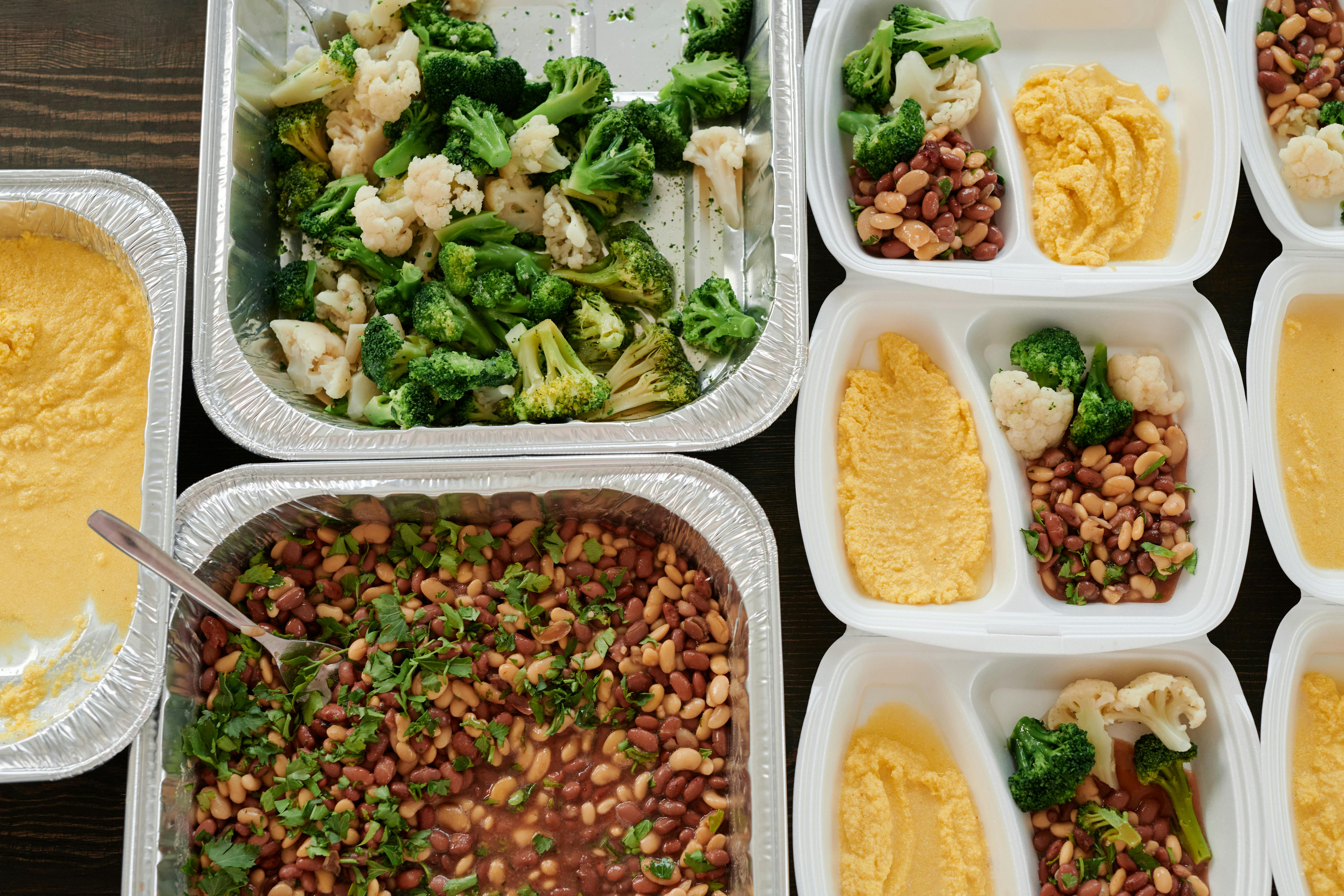Smart Ways to Optimize Electrolytes for Carnivore Diet in 2025

Smart Ways to Optimize Electrolytes for Carnivore Diet in 2025
The carnivore diet, characterized by its exclusive focus on meat and animal-based products, has gained significant traction among health enthusiasts seeking improved energy levels and metabolic health. One of the pressing concerns for individuals adopting this diet is maintaining optimal electrolyte balance, crucial for hydration, muscle function, and overall wellness. As the trend continues to evolve into 2025, understanding how to effectively manage electrolyte intake will be essential for those committed to this dietary lifestyle.
This article will explore essential electrolytes—including sodium, potassium, magnesium, and calcium—and their pivotal roles in a carnivore diet. We will discuss practical strategies for sourcing these electrolytes, the health benefits they provide, and how to incorporate them into meal planning effectively. By optimizing your electrolyte intake, you can enhance your performance, support recovery, and ensure your body functions optimally on this high-protein, low-carb diet.
Expect to discover various hydration strategies, quick tips for effective replenishment, and culinary techniques for making electrolyte-rich foods a staple in your diet. Let’s dive into the essentials for achieving electrolyte balance on the carnivore diet!
Understanding Key Electrolytes: Sodium, Potassium, Magnesium, and Calcium
Building on the importance of maintaining hydration, let’s take a closer look at the four key electrolytes critical for anyone following a carnivore diet: sodium, potassium, magnesium, and calcium. Each of these minerals plays a unique role in bodily functions, and a deficiency in any can lead to significant challenges.
The Role of Sodium in Carnivore Diet
Sodium is often regarded as a controversial mineral, particularly in low-carb diets, yet it is essential for fluid balance and muscle function. On the carnivore diet, the intake of sodium can aid in maintaining hydration levels, especially during the initial adaptation phases, where the body tends to excrete more sodium.
Opting for high-quality sea salt or Himalayan salt can significantly enhance sodium levels in meals while also providing trace minerals. This is vital during times of increased physical stress or when facing hydration challenges, ensuring that your energy levels and muscle function are optimal.
Potassium Sources and Benefits
Potassium is crucial for heart health, muscle contractions, and digestive functions. While many people associate potassium with fruits and vegetables, carnivore dieters can obtain sufficient amounts from organ meats, especially liver, and seafood. Incorporating potassium-rich foods ensures that you avoid symptoms of electrolyte deficiencies, such as muscle cramps and fatigue.
Maintaining potassium levels also supports healthy blood pressure and reduces the risk of chronic health conditions. Using bone broth can be an excellent source of potassium, making it a beneficial addition to your carnivore meal prep.
Magnesium Rich Foods and Their Importance
Magnesium aids in numerous biochemical processes in the body, including energy production and muscle recovery. On the carnivore diet, sources of magnesium include fatty fish, organ meats, and certain animal-based products. Ensuring adequate magnesium intake can mitigate issues associated with the “keto flu” often experienced by new dieters.
Additionally, maintaining magnesium levels is linked to improved sleep quality and stress management, both of which are vital for overall wellness. By focusing on nutrient-dense foods, carnivore dieters can effectively manage their magnesium levels and enhance recovery post-exercise.
Calcium and Its Crucial Functions
Calcium is known for its role in bone health and heart function. While dairy sources are typically associated with calcium, those on a carnivore diet can find ample calcium in fish with edible bones, organs, and well-cooked leafy greens if included in moderation. Maintaining the right levels of calcium is essential for preventing issues such as muscle cramps and ensuring optimal physical performance.
To effectively incorporate these electrolytes, consider meal variety and utilizing culinary approaches that enhance nutrient absorption. Engaging in meal planning that includes these sources can optimize your overall nutrient intake and promote metabolic health.
Hydration Strategies: Maintaining Electrolyte Balance
With these fundamentals established, moving on to hydration strategies becomes paramount. Hydration is essential for maintaining electrolyte balance, promoting energy levels, and supporting overall physical function on the carnivore diet.
Hydration Tips for Carnivore Dieters
Staying hydrated poses unique challenges on a low-carb diet. One recommended approach is to increase fluid intake gradually, coupled with the consumption of electrolyte-rich foods. Water alone may not suffice; supplementing with electrolyte drinks can benefit hydration, especially during intense physical activity.
Experimenting with flavored electrolyte supplements devoid of sugars can enhance hydration without the downsides of added carbs. Monitor your body’s response, adjusting your intake based on exercise levels and temperature.
Electrolyte Supplements and Replenishment
Considering the high-protein nature of the carnivore diet, occasional supplementation might be beneficial, especially during periods of increased sweat loss or carbohydrate reduction. Electrolyte supplements can help replenish lost minerals, particularly sodium and potassium, efficiently.
Picking supplements that mimic natural sources while ensuring high bioavailability will optimize your electrolyte levels. Always consult with a healthcare provider before introducing new supplements to your routine.
Nutritional Strategies for Electrolyte Efficiency
Adapting your nutrition for optimal electrolyte intake involves more than just food choice; it also encompasses timing and meal fulfillment. Designed meals that ensure nutrient sufficiency right after physical activity can significantly improve recovery and performance.
Incorporating hydration solutions and electrolyte replenishment before, during, and after physical activities ensures that your body maintains its intended performance levels. This strategic timing can lead to improved exercise results and quicker recovery times, enhancing your overall carnivore lifestyle.
Culinary Techniques: Enhancing Electrolyte Intake
Transitioning from hydration strategies to culinary techniques illustrates the importance of meal preparation in sourcing electrolytes. Adapting cooking methods can significantly affect nutrient absorption and retention.
Cooking Tips for Nutrient-Rich Meals
When preparing meals on the carnivore diet, employing techniques that preserve or enhance nutrient content is crucial. Slow cooking bones for broth can maximize calcium and magnesium extraction, while grilling fish or meats can retain key nutrients.
Additionally, using seasonings judiciously not only enhances flavor but can also contribute to the overall intake of essential minerals, including sodium. Experiment with various culinary techniques to find what suits your taste preferences while maximizing nutrient density.
Meal Planning and Variety for Success
Establishing a diverse meal plan can combat monotony while ensuring comprehensive nutrient coverage. Include organ meats, various cuts of meat, and seafood to create a well-rounded nutrient profile. Designing meals with an eye towards diversity can minimize the risk of mineral deficiencies.
Incorporating seasonal and local butcher sources can also lead to discovering new, nutrient-dense options to add to your regimen, enriching your nutritional integrity while supporting local vendors.
Essential Recipes for Electrolyte Optimization
Consider experimenting with carnivore recipes that emphasize electrolyte-rich components. Dishes featuring bone broth, organ meats, and seafood not only adhere to dietary guidelines but also promote hydration and nutrient levels effectively.
Sharing these recipes within the carnivore community can enhance your social experience while supporting your fitness goals, expanding on the variety of knowledge and culinary approaches available.

Monitoring Your Electrolyte Balance: Tools and Techniques
After understanding how to optimize the intake of essential minerals, the next step involves effectively monitoring your electrolyte balance. Being aware of your body’s signals can provide valuable insights into your nutritional status.
Health Assessments in the Carnivore Lifestyle
Regular health assessments are vital for understanding how well your body adapts to a carnivore diet. Monitoring markers such as hydration status, energy levels, and muscle cramps can indicate potential electrolyte imbalances. Implementing at-home testing kits can help track your progress and make necessary dietary adjustments.
Consistent evaluations can also guide dietary compliance, ensuring you adhere to your wellness goals while optimizing nutrient intake.
Hydration Tracking and Wellness Monitoring
Keeping a journal of fluid intake and dietary changes can aid in identifying patterns that contribute to dehydration or electrolyte deficiencies. Implementing wellness tracking apps can provide a comprehensive view of your hydration status and food consumption, thus enhancing dietary adherence.
Utilizing technology to track your progress can significantly motivate your journey while promoting dietary flexibility and optimal body function.

Conclusion: Achieving Optimal Electrolytes for Carnivore Diet Success
In conclusion, effectively managing electrolytes within a carnivore diet is crucial for achieving optimal health and performance. By focusing on nutrient-rich foods, incorporating hydration strategies, employing effective culinary techniques, and monitoring your electrolyte balance, you can enhance your overall well-being and ensure that your carnivore lifestyle is sustainable.
Optimizing your electrolyte intake allows you to experience the health benefits associated with this animal-based diet, supporting everything from muscle recovery to metabolic health. As the carnivore diet continues to evolve, stay adaptable, and informed, harnessing these strategies will set you on the path to success.
For more insights into nutrition and wellness, consider exploring additional tips on health optimization and hydration strategies.
Q&A Section
What are the primary electrolytes needed for a carnivore diet?
The main electrolytes required are sodium, potassium, magnesium, and calcium. Each plays a vital role in hydration, muscle function, and metabolic health.
How can I ensure I’m getting enough electrolytes on a carnivore diet?
Focus on incorporating high-quality meats, organ meats, seafood, and bone broth into your meals, while also considering electrolyte supplements if necessary.
What are the symptoms of electrolyte imbalance?
Symptoms can include muscle cramps, fatigue, dizziness, and irregular heartbeats. Monitoring your intake and symptoms is crucial for maintaining optimal health.
How does dehydration affect a carnivore dieter?
Dehydration can lead to electrolyte imbalances, negatively impacting physical performance, energy levels, and overall wellness. Prioritize hydration to mitigate risks.
Are there specific cooking methods that can enhance nutrient absorption?
Using techniques such as slow cooking and grilling can help preserve nutrients in meats, enabling better absorption of essential electrolytes.
Implementing these strategies will set you on the path to maximizing your performance while adhering to the carnivore diet.